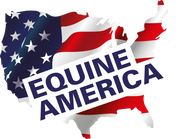Digestion Starts With The Teeth
When we think of digestive issues, we immediately think of the gut. Particularly in horses, we think about stomach ulcers or problems with the hindgut. However, digestion starts in the mouth - and correct chewing is vital to ensure the next stages of digestion all occur correctly. A lack of teeth from old age, discomfort when chewing from sharp edges, or just poor mouth conformation can result in poor or inefficient digestion and weight loss.
Equine Teeth
Teeth are extremely important for the health of a horse. As a horse ages, some natural wear and tear from grazing occurs, and as the teeth are ground down from chewing, the roots descend further and the teeth begin to take up less space in the jaw. By age 25, many horses will have lost some teeth entirely. Much like our teeth, they can be sensitive and they do have a nerve supply, meaning that any issues can quickly become very painful for the horse. There are many ways that a tooth can become damaged - through uneven wear resulting in sharp edges which can damage the cheek tissue, breaking, cavities or through damage to the cementum or enamel. All of these would result in difficulty eating, and pain and discomfort for the horse. Difficulty chewing can also result in weight loss. This is why it is crucial that horse's teeth are checked regularly by a qualified equine dental technician or vet, and that any issues are quickly resolved.
Signs of dental issues in horses
The equine dental technician will ask for some information about the horse, including age, weight and type of exercise. A gag and headstand may be used, and the horse may be sedated if required. Teeth will be checked and counted, and the gums will also be checked. The teeth may also be rasped to remove edges (also known as 'floating' in many parts of the world) and a pick my be used to clean any feed or grass stuck in the teeth, which could become infected and cause gum disease. This will help to ensure that the teeth and gums are healthy, and that the horse can be happy and comfortable to eat and be ridden.
Did you know...?
Did you know... horses make between 800 and 1200 chewing movements per kg concentrate feed, and between 3000 and 3500 chewing movements per kg of hay? Ponies may make over 8000 chewing movements per kg hay!
Did you know... that foals can have 16 teeth at birth, and some have small, long-rooted teeth? These should be checked at 12 months in case they require extraction.
Did you know... that by age 5, most foals will have a full set of permanent teeth? Male horses will have 40 permanent teeth, but mares have anywhere from 36-40, as they are less likely to have canine teeth!
Explore our full Digestive Range
 Skip to content
Skip to content

